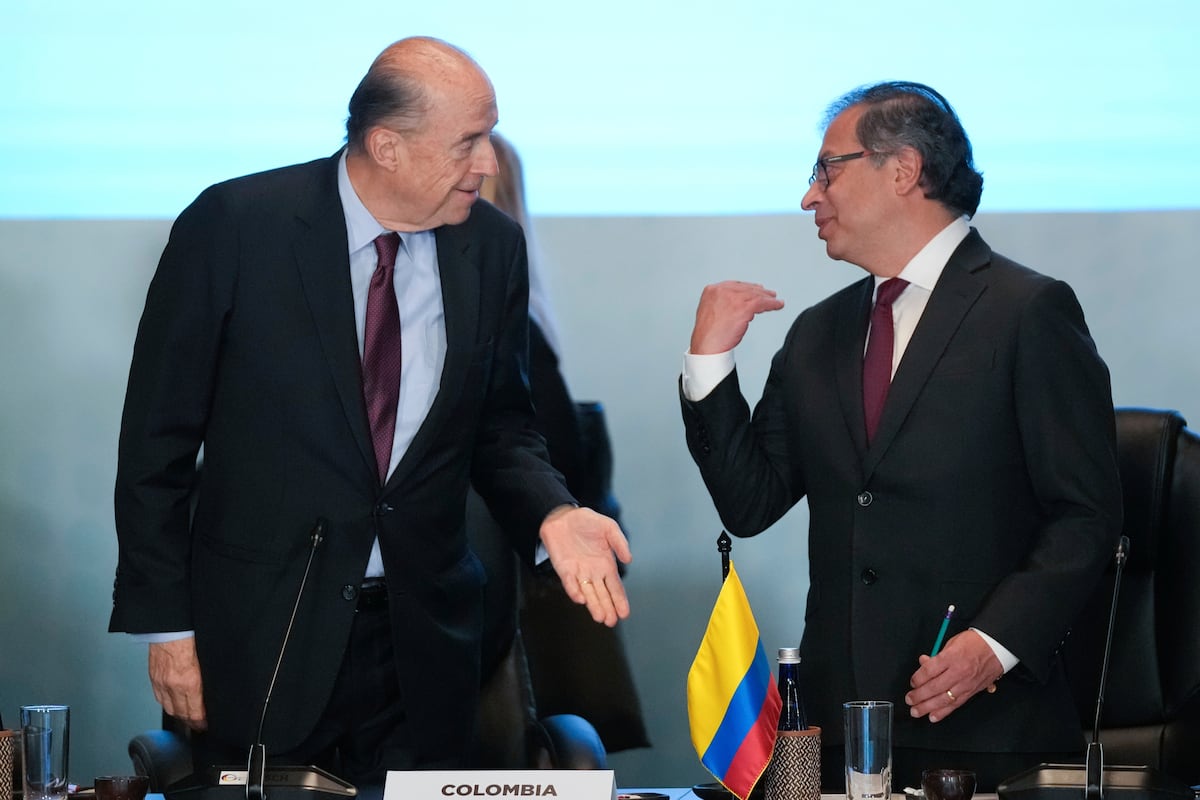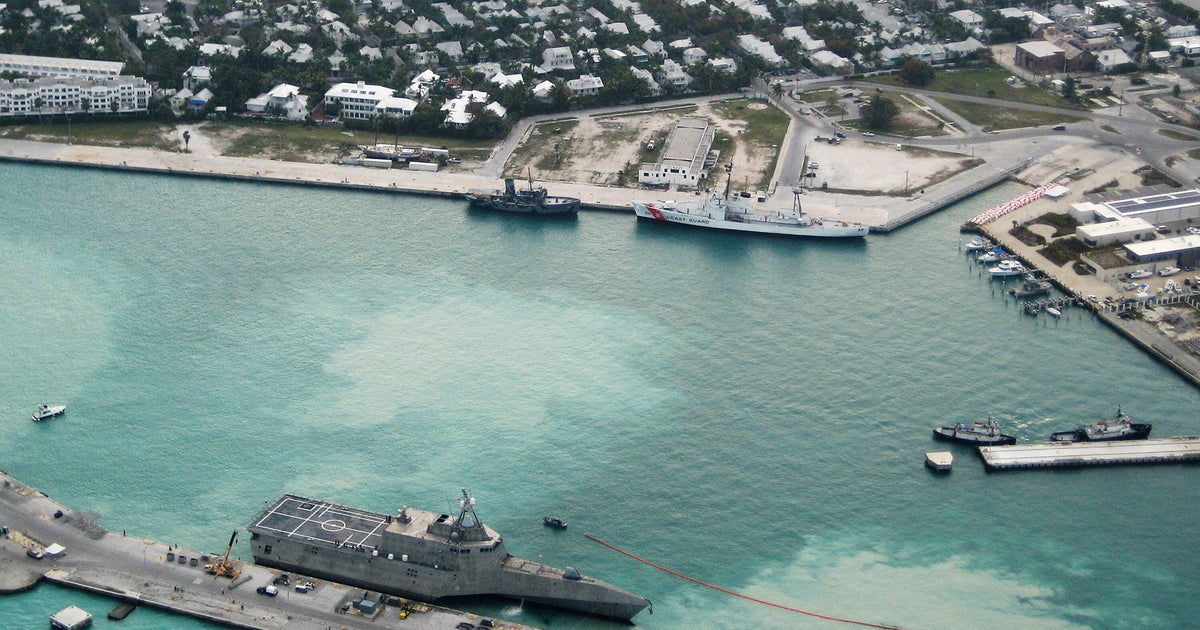Ex-Chancellor Accuses Colombian President Petro of Drug Addiction, Sparking Political Crisis
Table of Contents
- 1. Ex-Chancellor Accuses Colombian President Petro of Drug Addiction, Sparking Political Crisis
- 2. Petro’s Rebuttal and the Fallout
- 3. Political Reactions and Calls for Examination
- 4. From Peace Negotiator to Vocal Critic
- 5. A Fractured Relationship and Public Disagreements
- 6. Implications for U.S.-Colombia Relations
- 7. FAQ: The Petro Controversy
- 8. The best
- 9. Archyde Exclusive: Interview with Dr. Elena Vargas on the Colombian Political Crisis
- 10. Understanding the Gravity of the Situation
- 11. Analyzing the Players and Their Motivations
- 12. The Broader Implications and the Future
- 13. Inviting Public Discourse
Former Foreign Minister Álvaro Leyva Durán levels serious allegations against President Gustavo Petro, fueling instability in colombia.
BOGOTÁ, colombia – A political firestorm has erupted in Colombia after former Foreign Minister Álvaro Leyva Durán publicly accused President Gustavo Petro of drug addiction, alleging it impairs his ability to govern. The accusation, delivered in a scathing four-page letter released Wednesday, has sent shockwaves through the Colombian political landscape, already reeling from a series of scandals and internal conflicts.
Leyva, an 82-year-old political veteran who once served as one of petro’s closest allies and chief architects of his “total peace” initiative, claims he “confirmed that you had the problem of drug addiction” during an official visit to Paris in June 2023, when Petro allegedly “disappeared two days.”
Petro’s Rebuttal and the Fallout
president petro swiftly responded to the allegations via X, his preferred social media platform, without directly naming Leyva. “The only way for the press to publish letters, is insulting me. Not only speaks badly of the writer, but of the press,” Petro wrote. He then added, “Do I have no daughters and granddaughters in Paris, much more engaging than the writer?” referencing his daughters Andrea and Sofia, who resided in the French capital at the time.
In a subsequent public address, Petro offered a more direct counterattack, stating, “We are addicted to love on purpose… Why do you lose two days,companion? Do not think much (…) What happens is that the writer can no longer do that.”
The allegations come at a notably vulnerable time for Petro, whose presidency has been plagued by scandals involving his son, Nicolás, accused of illicit campaign contributions; his brother, Juan Fernando; the mysterious loss of a suitcase filled with money from the home of his close aide, Laura Sarabia; and leaked audios of his then-Interior Minister Armando Benedetti verbally attacking Sarabia.
Leyva’s letter further fans the flames of discord between Benedetti and Sarabia, who are currently embroiled in a public feud despite Sarabia now serving as Petro’s chancellor. “You are still a victim of those questioned officials,” Leyva wrote to Petro, knowing his words would be “ammunition for your critics.”
Political Reactions and Calls for Examination
The accusations have triggered a wave of reactions across the Colombian political spectrum. Sergio Fajardo,a former presidential candidate,stated,”Álvaro Leyva’s letter confirms everything… Petro’s ex-chancellor says it, one of his closest men: ther are chaos, crisis and contradictions in the president’s head. It truly seems joke, but it is indeed the hard reality. Ability to lead him seriously and rigorly.”
Right-wing political figures have gone further, demanding a medical examination to determine Petro’s fitness to govern and calling for toxicological tests. Meanwhile, Petro’s supporters have dismissed the allegations as a smear campaign. “That the only resource is to undermine his private life is from Canallas [scoundrels],” said Senator María José Pizarro.
The situation is amplified by Leyva’s recent history: he is currently suspended from holding public office for 10 years due to his improper cancellation of a passport tender in late 2024.
From Peace Negotiator to Vocal Critic
Leyva,once a celebrated figure in Petro’s management,played a key role in the president’s “total peace” initiative,aimed at negotiating with various armed groups in Colombia. When announcing Leyva as his Foreign Minister in August 2022, Petro stated, “Colombia will contribute to the world all its effort to overcome the climatic and the world we expect all the effort to overcome our endemic violence.”
During his tenure, Leyva was instrumental in restoring diplomatic relations with Venezuela under nicolás Maduro and strengthening ties with Cuba, both of which became guarantors in peace talks with the ELN guerrillas and FARC dissidents. Though, his focus on the peace process frequently enough overshadowed other diplomatic priorities, leading to controversies and criticisms.
his dismissal as Foreign Minister came after a dispute over a passport tender,which led to a heated exchange with the director of the State Legal Defense Agency,Martha Lucía Zamora. According to journalist Daniel Coronell, Petro sided with Leyva in the dispute, leading to Zamora’s removal.
A Fractured Relationship and Public Disagreements
In early 2025, Leyva began expressing his discontent with the Petro administration through cryptic messages on social media. He criticized Petro’s handling of a diplomatic crisis with the United States and hinted at questionable appointments within the government.The apparent targets of his criticism then were Laura Sarabia’s appointment as Chancellor and Armando Benedetti’s role as head of the Casa de Nariño. “Discounted to those who have abused you, who have taken advantage of their very complex situation and who have done and continue to do it terrible damage,” he advises the president, “as if the letter was not the fuel that lights a new bonfire for petro.”
Implications for U.S.-Colombia Relations
The political turmoil in Colombia could have implications for U.S.-Colombia relations, particularly in areas such as drug policy and trade. The United States has historically been a strong ally of Colombia, providing important financial and security assistance.Though, Petro’s leftist policies and his administration’s internal instability could strain this relationship. The allegations against Petro could embolden critics in the U.S. Congress who are skeptical of his administration and its policies. This could lead to increased scrutiny of U.S. aid to colombia and potentially impact bilateral cooperation on key issues.
One potential counterargument is that Leyva’s accusations should be viewed with skepticism, given his own legal troubles and history of political maneuvering. His motives could be driven by personal grievances or a desire to destabilize the Petro administration for his own political gain. Though, the seriousness of the allegations and the context of ongoing scandals surrounding Petro warrant careful attention and investigation.
FAQ: The Petro Controversy
| Question | Answer |
|---|---|
| What are the accusations against President Petro? | former Foreign Minister Álvaro Leyva Durán has accused President Petro of drug addiction, claiming it affects his ability to govern. |
| What was President Petro’s response to the accusations? | Petro responded via social media, criticizing the press for publishing the letter and questioning the motives of the writer without directly addressing the drug allegations. He later made a public statement vaguely referencing the situation. |
| Why are these accusations significant? | The accusations come from a former close ally and occur amidst a series of scandals plaguing Petro’s administration, potentially destabilizing his government and impacting international relations. |
| What is Álvaro Leyva Durán’s background? | Leyva is an 82-year-old veteran politician who served as Petro’s Foreign Minister and was a key figure in the “total peace” initiative. He is currently suspended from holding public office. |
| How might this affect US-Colombia relations? | The turmoil could strain relations, leading to increased scrutiny of US aid and potentially impacting bilateral cooperation on drug policy and trade. |
The best
Archyde Exclusive: Interview with Dr. Elena Vargas on the Colombian Political Crisis
Archyde News Editor: Welcome, Dr. Vargas. Thank you for joining us today to discuss the unfolding political crisis in Colombia following the accusations against President Petro. For our readers,Dr. Elena Vargas is a renowned political analyst specializing in Latin American affairs.
Dr. Elena Vargas: Thank you for having me. It’s a critical situation, and I’m happy to shed some light on it.
Understanding the Gravity of the Situation
archyde News Editor: Dr. Vargas, the central issue is the accusation of drug addiction leveled by former foreign Minister Álvaro Leyva Durán. How notable is this in the context of Colombian politics?
Dr. Elena Vargas: It is indeed incredibly significant. Coming from a figure who was once so close to President Petro, it adds immediate credibility, nonetheless of the truth. It is a high-stakes situation with ramifications for both domestic and international relations. The implications are severe. The timing also is terrible, with the president already embroiled in multiple scandals.
Analyzing the Players and Their Motivations
Archyde News Editor: Leyva’s allegations are particularly damaging.What are your thoughts on the motives behind his accusations?
Dr. Elena Vargas: That’s the million-dollar question. leyva’s own history is complex, considering his suspension. It’s possible that personal grievances or the desire for political maneuvering are involved. However, it’s also possible that his experience and connection to Petro have led him to genuinely believe these allegations. The truth likely lies somewhere in between, a mix of various factors.
Archyde News Editor: President Petro’s responses have been relatively subdued. How would you interpret his reactions?
Dr.Elena Vargas: His initial reaction, through social media, was a deflection. The later statement was a bit more direct, but still avoids a firm denial. Avoiding directly addressing the accusations, to me, shows that the situation is complex. It could be a strategic move to avoid fueling the fire, or it could be a sign of something more concerning.
The Broader Implications and the Future
Archyde News Editor: Beyond the immediate impact, what are the potential consequences for U.S.-Colombia relations, and beyond?
Dr. Elena Vargas: The U.S. will be watching closely. This could create a significant strain on their relationship due to the country’s leftist policies and internal instability. Drug policy, trade, and security assistance could all be affected. This situation may also encourage political infighting and even affect other nations in South America.
Archyde News Editor: With so much uncertainty, what are the possible scenarios going forward?
Dr. Elena Vargas: Several scenarios are possible. There could be a formal investigation, potentially leading to public medical examinations or legal challenges. Alternatively, the situation could escalate, with greater demands on President Petro’s presidency. Or, perhaps it fades, but it is unlikely. More likely is a long, drawn-out period of political instability, where the legitimacy of the Presidency diminishes.
Inviting Public Discourse
Archyde News Editor: Dr. Vargas, thank you for the insights. for our readers, what one critical factor should they consider when following this story?
Dr. Elena Vargas: Consider the sources of the data and the motivations of those providing it. Verify information from multiple, reliable sources, and realize that the truth may be complex and very well-guarded. Be open-minded, cautious, and make informed judgements as the story unfolds.
Archyde News Editor: Thank you, Dr. Vargas. This has been a valuable discussion.








